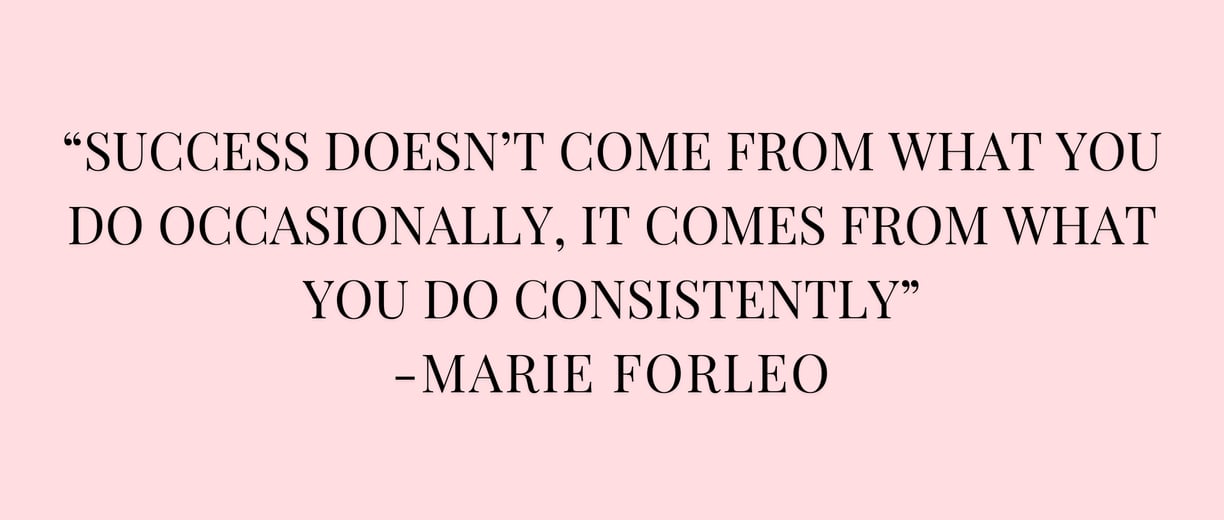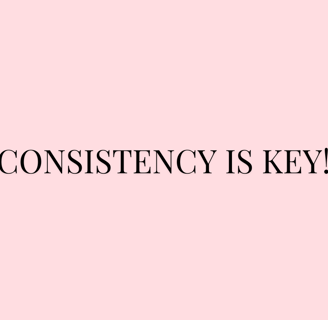Transform Your Life: Learn How to Build Good Habits
In a world that constantly pulls us in different directions, the quest for self-improvement can often feel overwhelming. Yet, it’s within our reach to transform our lives through the simple, yet powerful practice of building good habits. By consciously cultivating positive routines, we can create a foundation for personal growth that not only enhances our daily lives but also propels us toward our long-term goals. Whether you’re looking to boost your productivity, enhance your well-being, or develop new skills, learning how to foster and maintain good habits is the key to unlocking your potential. Join us as we explore the transformative power of habits and discover how you can begin your journey to improve yourself, one small change at a time.
Lillian
12/18/20247 min lesen


Why Good Habits Matter and How to Cultivate Them
Good habits are the cornerstones of a fulfilling and productive life. They shape our daily routines, influence our health, and significantly impact our overall well-being. When we cultivate healthy habits, we not only improve our physical state but also enhance our mental clarity and emotional resilience. Over time, good habits create a framework for success, as they enable us to stay focused on our goals and manage our time wisely. The little daily choices we make can either elevate our lives or lead us down a path of complacency.
Cultivating good habits begins with awareness and intention. It requires us to pay attention to our existing patterns and identify behaviors we want to change or adopt. For example, incorporating exercise into our daily routine can be as simple as taking a 30-minute walk or doing a brief workout. By starting with small, manageable steps, we can gradually build up to more significant commitments. Reinforcement is also crucial; tracking our progress and celebrating milestones can help maintain motivation and commitment. Surrounding ourselves with supportive individuals can create an environment conducive to forming and sustaining healthy habits.
Moreover, understanding the role of consistency in habit formation is vital. Experts suggest that it takes about 21 to 66 days to establish a new habit, emphasizing the importance of perseverance. During this period, setbacks may occur, but they should be seen as opportunities for growth rather than reasons to abandon efforts entirely. It’s essential to be kind to ourselves during this process and recognize that cultivating good habits is a journey, not a destination. With time and perseverance, these habits become ingrained in our lifestyles and contribute to our long-term health and happiness.
Ultimately, the benefits of good habits permeate all aspects of life—physical, emotional, and social. They foster a sense of discipline and control, providing a solid foundation for achieving our aspirations. By consciously working to cultivate healthy habits, we empower ourselves to lead lives rich in purpose and fulfillment. In this fast-paced world where distractions abound, the pursuit of good habits serves as a reminder of the power of consistency and mindful living. As we make deliberate choices that align with our health and ambitions, we pave the way toward a brighter and more fruitful future.
The Science Behind Habits: Understanding the Habit Loop
Habits play a crucial role in shaping our daily lives, often operating beneath the surface of our conscious thoughts. Understanding the science behind habits is essential for anyone looking to make lasting changes. At the core of this understanding is the habit loop, a concept popularized by Charles Duhigg in his book "The Power of Habit." This loop consists of three key components: cue, routine, and reward. The cue acts as a trigger, signaling the brain to enter a specific mode of operation. This is followed by the routine, which is the behavior itself, and finally the reward, which provides positive reinforcement that the behavior was beneficial.
The habit loop highlights the automatic nature of habits; they occur almost without our awareness. This automaticity can be both beneficial and detrimental, depending on the habits we cultivate. To break unhealthy patterns or establish new, constructive ones, it’s vital to identify the cues and rewards that initiate these routines. By recognizing what triggers our habits, we can work to modify or replace them. For anyone exploring how to grow good habits, this framework offers a clear pathway toward making conscious choices that lead to desired outcomes.
Creating good habits involves deliberate practice and patience. Once you understand your cue and routine, the next step is to craft a rewarding experience that reinforces the new behavior. This could involve setting small goals and celebrating little victories along the way. Each time you successfully engage in your new routine, the satisfaction you feel becomes part of the reward, which in turn strengthens the habit loop. Over time, these efforts compound, making it easier to maintain good habits and dismantle the unwanted ones.
The science of habits teaches us that change is possible through awareness and intentionality. By focusing on the habit loop and understanding how our brains respond to cues, routines, and rewards, we can empower ourselves to create a lifestyle rich in positive behaviors. This knowledge is key not only for individual growth but also for fostering a supportive community where healthy habits can flourish. Making small changes today can lead to significant transformations tomorrow, illustrating the profound impact of developing good habits in our lives.
Setting Yourself Up for Success: Creating a Habit-Forming Environment
Staying committed to your habits can often feel like an uphill battle, especially when motivation wanes or distractions creep in. Finding motivation is crucial to ensure that the hard work you put into developing good habits doesn’t go to waste. One helpful strategy is to visualize your long-term goals and remind yourself of the reasons why you started in the first place. By reconnecting with your purpose, you can reignite your passion and determination to keep moving forward.
Another effective method is to break your goals into smaller, manageable tasks. This approach reduces the overwhelm that can often accompany large objectives. Each time you accomplish one of these smaller tasks, it creates a sense of achievement that fuels motivation to continue. Creating a checklist can also add an element of fun to your journey towards building habits. Marking off completed tasks not only serves as a visual representation of your progress but can also provide a satisfying sense of closure.
Accountability plays a critical role in maintaining motivation. Whether it’s a friend, a family member, or a support group, sharing your journey with others can provide encouragement and inspire you to remain faithful to your commitments. Engaging in frequent conversations about your progress and setbacks helps reinforce your resolve. You might even find that discussing your experiences allows you to gain new perspectives on how to grow good habits and tackle challenges along the way.
Finally, embrace the idea of self-compassion. It’s important to remember that setbacks are a natural part of any growth process. Instead of harshly judging yourself for missed opportunities or failures, practice kindness and understanding. Recognizing that it’s okay to stumble occasionally can help you recover more quickly and maintain momentum. With a combination of visualization, breaking down goals, accountability, and self-compassion, you can cultivate lasting motivation to help you stay committed to your habits.
Tracking Your Progress: Tools and Techniques for Monitoring Growth
In an ever-evolving world, tracking your progress is essential for personal growth and goal achievement. To navigate this journey effectively, various tools and techniques can aid in monitoring your development over time. Utilizing a combination of digital and analog resources can provide a comprehensive view of your progress. For instance, apps that track habit formation, fitness routines, or project milestones can serve as real-time monitors of your activities. Similarly, maintaining a journal allows for reflective thinking, where you can jot down experiences, insights, and challenges faced along the way. This dual approach ensures that you don’t just focus on quantitative data but also capture qualitative insights that can inform your growth path.
Understanding how to grow good habits is central to any progress tracking initiative. One effective method for establishing solid routines is the SMART criteria—setting Specific, Measurable, Achievable, Relevant, and Time-bound goals. By delineating clear objectives, it becomes easier to break down tasks into manageable steps. Habit trackers that visualize your daily or weekly progress can further reinforce consistency. For example, using a calendar to mark daily achievements or a spreadsheet to quantify milestones helps create a sense of accomplishment. When you can see your progress laid out visually, it often serves as motivation to continue pushing forward.
In addition to these practical tools, accountability plays a critical role in tracking progress. Sharing your goals with friends, family, or colleagues can create a support system that encourages adherence to your plans. Consider finding an accountability partner who has similar goals; regular check-ins can foster a sense of commitment. Online communities and forums dedicated to personal growth can also be beneficial, providing a platform for sharing experiences and gaining insights from others. This social accountability can complement the solitary nature of tracking your progress and introduce a dynamic exchange of encouragement and advice, making the journey more enjoyable.
Ultimately, the key to effective progress tracking lies in the blend of strategy and reflection. By embracing tools that facilitate both measurement and mindfulness, you can cultivate an environment conducive to growth. As you explore how to grow good habits, remember that the path to success is rarely linear. Embrace setbacks and celebrate victories, and ensure that your tracking methods evolve alongside your goals. Through consistent monitoring and adaptive techniques, you empower yourself to foster lasting improvements in your life.
Celebrating Success: Rewarding Yourself Along the Habit-Building Journey
Embarking on the journey of habit-building is an empowering experience, yet it can often feel overwhelming. As you set out to transform your behaviors, it’s essential to recognize and celebrate the small victories along the way. Rewarding yourself is not merely a way to acknowledge your progress; it reinforces the positive aspects of your new habits and motivates you to stay committed. Learning how to grow good habits involves appreciating your efforts, regardless of whether they lead to immediate results or not, because every step taken is a stride towards your ultimate goals.
One effective strategy for celebrating success is to set milestones that are both realistic and achievable. These benchmarks provide tangible points of reference for your progress, allowing you to savor each moment along the way. For instance, if one of your habits is to exercise regularly, you might reward yourself after completing your first full week of workouts. This could be something as simple as treating yourself to a favorite meal or taking a relaxing day to recharge. Each celebration reinforces the notion that hard work is worth it and builds a positive feedback loop that encourages you to keep on track.
In addition to celebrating milestones, it’s important to create a culture of self-compassion throughout your habit-building journey. Understand that setbacks are part of the process; recognizing this can alleviate the pressure you place on yourself. Instead of viewing a missed workout or a day of unhealthy eating as failures, consider them as opportunities to learn and improve. Rewarding yourself after a setback—perhaps with a calming self-care activity—can build resilience and keep your motivation high. This approach aligns with the idea that how to grow good habits is often intertwined with how we respond to challenges.
Ultimately, the act of rewarding yourself enables you to cultivate a more enjoyable and sustainable journey towards personal growth. As you learn to recognize and honor your achievements, whether big or small, you’ll find that building good habits becomes an enriching experience. Each reward not only serves as encouragement but also as a reminder that the journey itself is just as valuable as the destination. Embrace this celebration of success, and you will pave the way for lasting, positive changes in your life.


